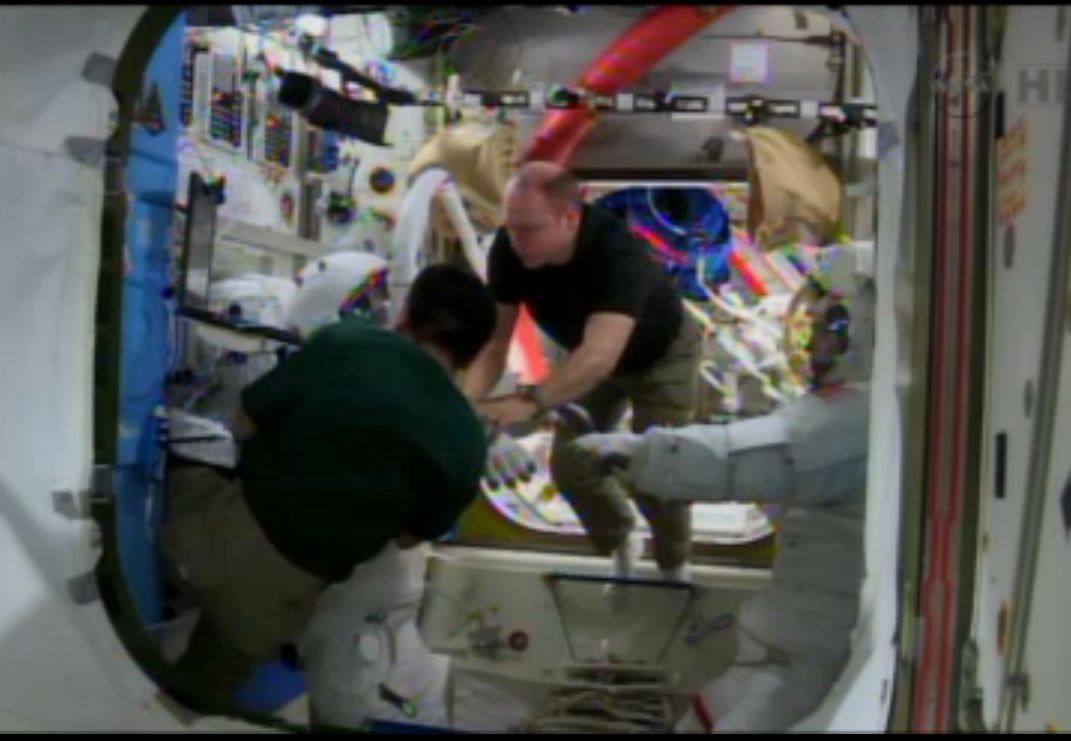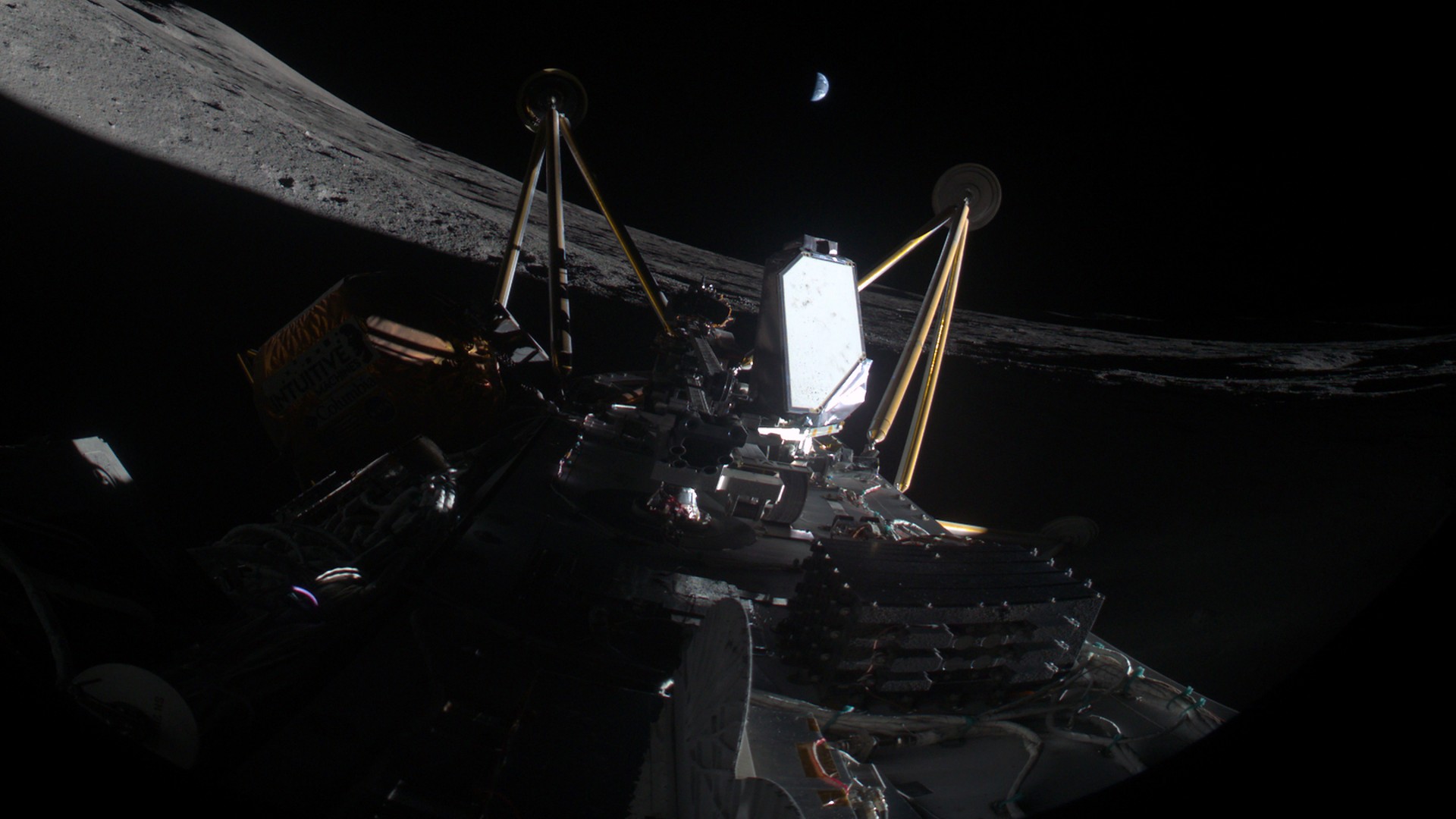Holiday Spacewalks Set to Fix Space Station's Cooling System

Repairing a problem with the International Space Station's vital cooling system will require two or three spacewalks over the next week, NASA officials said today (Dec. 18).
NASA astronauts Mike Hopkins and Rick Mastracchio will venture outside the orbiting lab for the first holiday spacewalk on Saturday (Dec. 21), with the two subsequent extravehicular activities (EVAs) scheduled for Dec. 23 and Christmas Day (Dec. 25).
During the urgent spacewalks, Mastracchio and Hopkins will focus on replacing a faulty pump module in the cooling system, which keeps instrumentation outside and inside the orbiting outpost cool. While the six residents aboard the space station are not in any immediate danger from the cooling problem, NASA officials decided it was still best to go forward with the spacewalks to fix the issue. [How the Space Station's Cooling System Works (Infographic)]
The upcoming EVAs will be the first United States spacewalks performed since Italian astronaut Luca Parmitano's spacesuit filled with water, cutting short his EVA with NASA astronaut Chris Cassidy in July. Hopkins will be using Parmitano's suit during the spacewalks, and NASA officials are confident that it will function normally.
"We have done quite a bit of research on this [spacesuit problem] and we have decided to take a look at using Luca's suit again," NASA flight director Dina Contella told reporters today. "Mike Hopkins will be wearing that particular suit. We think that's an extremely clean suit, and it's ready to go."
Astronauts on the station have also installed a snorkel-like tool in their spacesuits in case the flooding issue happens again during the spacewalks. Hopkins' and Mastracchio's helmets have also been outfitted with an absorbent pad that will help them detect if water is flooding their suits.
The station's cooling-system issue began on Dec. 11 when a malfunctioning valve in one of the station's two external cooling loops forced a pump module to shut down after it registered lower-than-normal temperatures. The issue resulted in the power-down of some of the station's non-critical systems, including scientific experiments in two of its laboratories.
Get the Space.com Newsletter
Breaking space news, the latest updates on rocket launches, skywatching events and more!
"To date, we haven't lost any research." NASA's Mike Suffredini, International Space Station program manager, said today. "We've had to manage what research we do."
The first spacewalk will aim to prepare the failed pump module for its removal and prep the spare pump — stowed on an outside part of the space station — for its installation during the second spacewalk. During the Dec. 23 spacewalk, Hopkins and Mastracchio will work to remove the failed pump and begin installing the new one. The third EVA, if necessary, will stow the failed pump for possible future repairs and finish installation on the new one.
The launch of Orbital Sciences' Cygnus spacecraft's first official supply trip to the space station is now pushed into next month. Cygnus was set to launch atop Orbital Sciences' Antares rocket on Thursday, but because of the spacewalks, the launch has been deferred until Jan. 13 at the earliest.
Follow Miriam Kramer @mirikramer and Google+. Follow us @Spacedotcom, Facebookand Google+. Original article on SPACE.com.
Join our Space Forums to keep talking space on the latest missions, night sky and more! And if you have a news tip, correction or comment, let us know at: community@space.com.

Miriam Kramer joined Space.com as a Staff Writer in December 2012. Since then, she has floated in weightlessness on a zero-gravity flight, felt the pull of 4-Gs in a trainer aircraft and watched rockets soar into space from Florida and Virginia. She also served as Space.com's lead space entertainment reporter, and enjoys all aspects of space news, astronomy and commercial spaceflight. Miriam has also presented space stories during live interviews with Fox News and other TV and radio outlets. She originally hails from Knoxville, Tennessee where she and her family would take trips to dark spots on the outskirts of town to watch meteor showers every year. She loves to travel and one day hopes to see the northern lights in person. Miriam is currently a space reporter with Axios, writing the Axios Space newsletter. You can follow Miriam on Twitter.
